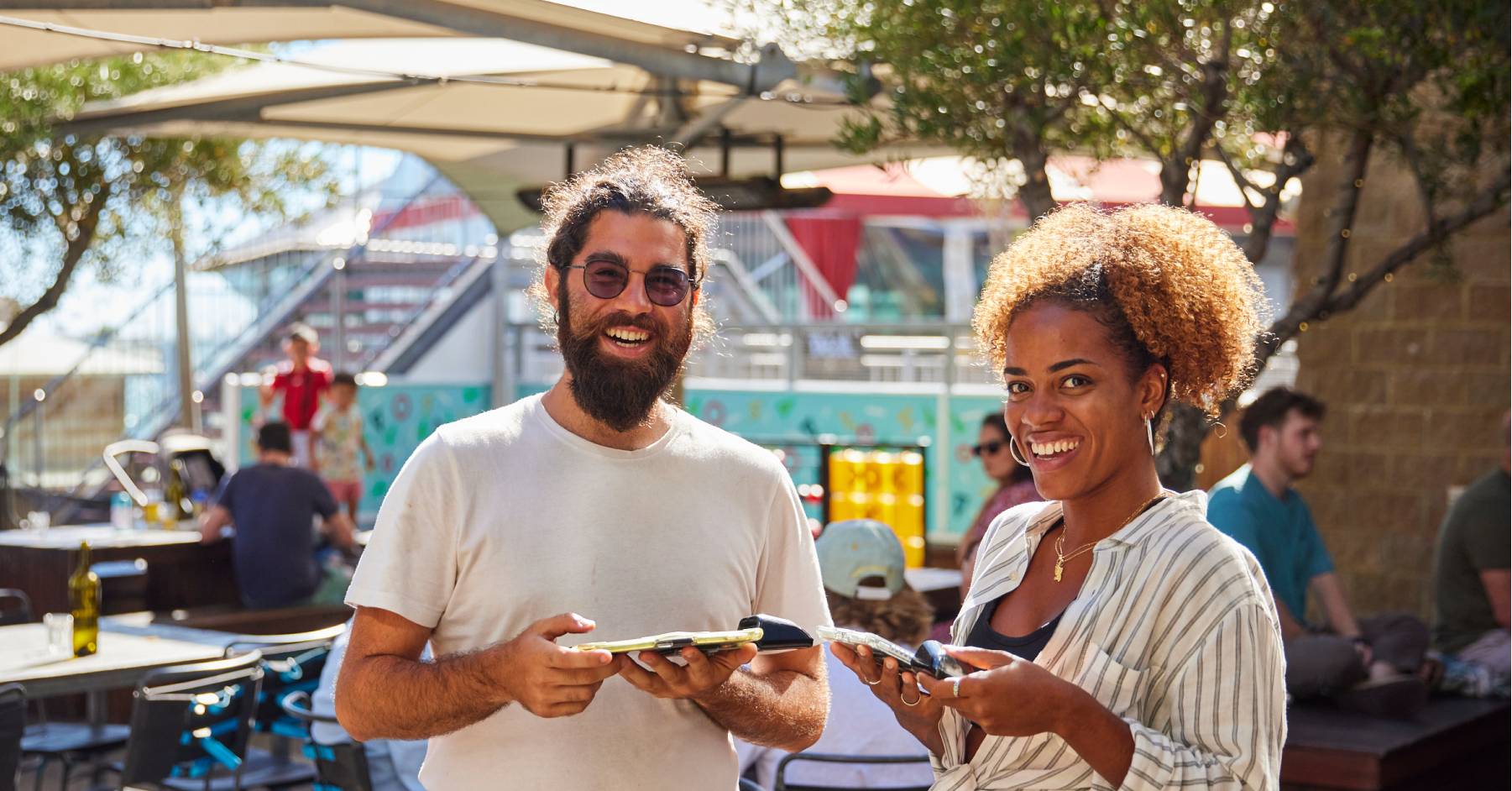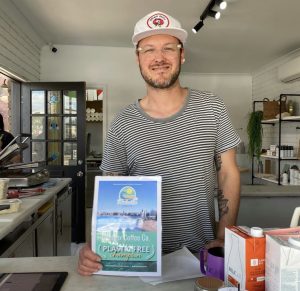
The Australian hospitality industry is struggling. There’s no ignoring this.
With the rules in a constant state of flux, and a seemingly ‘let her rip’ attitude towards avoiding another lockdown, the latest Omicron variant of the world’s most unwelcome guest is bringing us to our knees.
A staff shortage last year has become a crisis as venue after venue is forced into closures (both temporary and permanent) and it’s showing no signs of slowing down.
Add to this the ending of the Jobkeeper & Jobsaver schemes, and the COVID-19 Business Grant, and it’s looking like a heartbreaking, grim future we find in store for ourselves.
But, the show must go on so, here I’ll attempt to outline some solutions that could ease the staffing struggle and keep your doors open as often as possible.
Self-isolation for close contacts
Tell me if this sounds familiar? You’re walking down a popular street, littered with bars and restaurants, maybe on your way to one of them, only to see a hastily written sign posted on a locked door explaining that the place has had to close due to having no staff?
It’s becoming a regular thing, isn’t it?
As Australia opened up, we were all justifiably keen as mustard to get back outside and into our favourite haunts. Not only were we offered a glimpse at some long-forgotten familiarity, but the owners of these venues were finally given the chance to start making money again, as were their long-suffering staff (at least those who’d managed to survive months without work).
And then the news started to trickle in about a new variant, just in time for the busy period.
And I don’t know whether it was down to lockdown fatigue, or maybe some blind optimism that it wouldn’t be as bad because we’re well vaccinated, or even desperation at being able to trade with a semblance of normality, but we just kept going.
Day after day of record cases kept coming and going, but nothing changed; the shackles remained loose and the doors remained open.
“The bigger establishments can cover, to a degree,” says Todd Rosenfeld, owner of Cronulla’s Hendrix Coffee Co. “Being so small, if someone has COVID here, the other person (working) is a close contact, and that’s 2 of 4 staff out of the picture,”

“So, if me and (the other cook) have both got COVID, then that’s food gone for at least a week…it’s a bit of a tightrope at the moment whether we can navigate it.”
It’s an obvious concern for small venues who would be very poorly insulated from a positive result within their ranks.
And if a country is putting up record numbers every day, the people working on the frontlines are going to be more vulnerable. Hospo workers never stood a chance.
Suddenly, an already paper-thin workforce was thinning still as staff became exposed to the virus. Venues found themselves in the unenviable position of either stretching their tired staff further by trading with a smaller team, or closing their doors and losing out on some much-needed trade in the busiest time of the year.
It was lose-lose, whichever way you looked at it.
Limit the risks
There are ways to limit the impact, though you might not like them.
One such way would be to go back to doing takeaway only. I know it’s not ideal, but it drastically cuts down on the face to face time between your team and the general public. Chances are that you’ll have the mechanisms already in place from the endless lockdowns of days gone by, and your customers, whilst potentially upset at not being able to dine in, will still get to order their favourites.
If that doesn’t sound viable, there’s always the al fresco option too.
We’re in the middle of summer, so moving your dining area outside (if there’s the option to) doesn’t seem like such a bad idea. Local governments are still offering exemptions for outdoor dining, and it’s a lot safer for everybody when it comes to battling an airborne virus.
Finally, you could consider adjusting your opening hours to close on the quieter days. Now, whilst this does have the potential for you to miss out on earnings, it could be a prudent way of both protecting your team, and ensuring that the wages you are paying are on the busier shifts.
Staff wages
Now, let me start by saying that I’ll always be in support of hospo staff getting paid as much as they possibly can. This counts double after the 18 months they’ve just endured. But there’s an ugly side to the industry that’s beginning to creep in, and it’s a little worrying in the long run.
You see, the staffing crisis is getting bad enough that restaurants, and other venues, are starting to poach each other’s staff with the dangled carrot of higher wages. And I’m not talking about an extra few cents per hour here, I’m talking dishies on $90 per hour whilst apprentice chefs languish on a paltry $13.
Be a positive member of your hospo community
This isn’t an attack on the dishies, far from it. I wouldn’t expect anybody to let such an opportunity pass them by. But for business owners, surely there’s merit in boosting your apprentice’s and existing staff’s wages, and maybe having them run a few loads through the dishwasher instead? The money is obviously there, and they’ll (hopefully) learn a lesson about pulling together in times of need and seeing the bigger picture, rather than resenting a dishy pulling in almost 7 times what they are, creating fractures in your venue’s culture.
And that’s why this is so dangerous.
Like I said, I’d normally be in favour of higher wages, but there’s a difference here. We’re all doing it tough, and to poach another venue’s staff at a time of such uncertainty shows a lack of compassion and a disregard for the overall health of our industry.
And let’s be honest, once this thing is finally over, is it really sustainable to have any staff on such high wages?
Protect your staff
Is that even possible anymore?
Hear me out. We’re living with this strange set of rules and circumstances at the moment where, in a fully-compliant venue there can be tables full of people chatting, laughing, eating, and drinking, all without wearing masks and only a double vaccination certificate (and their word that they’re not positive) as a safety measure.
All it takes is for one person in a venue to have the virus (whether aware or not) and it has the potential to take down your entire team
With Job Keeper and Job Saver long finished, customer-facing workers, like the people in hospo, are put at risk every time they clock in for a shift. All it takes is for one person in a venue to have the virus (whether aware or not) and it has the potential to take down your entire team either through a positive test result, or through being a close contact.
We’ve got to mask up and we’ve got to be extra vigilant with the check ins and proof of vaccinations. They’re really the only weapons we’ve got in our arsenal at this point.
If you can (and I know this is a big ‘if’), keep a little extra aside in case some of your team do have to isolate. Many hospo workers are casual and won’t receive any income if they’re not allowed to work. Keeping a roof over their head and food in their kitchens should be a priority when trying to protect your team.
There’s also the option of utilising your POS to offer table ordering, limiting the physical contact with your customers to the running and clearing of dishes.
So, what can we do?
As cliche as it is, we’re living in volatile, uncertain times. At any moment, a positive case (or even just a close contact) can bring down venues and rip the livelihoods from casual staff with no option of working from home.
The best thing we can do is keep vigilant. Check every check in, keep your masks up and your hands washed. Space out your tables, even put them outside if you can, and limit the face-to-face time with your customers.
And keep reminding yourself that this isn’t forever. A good hospo scene is a community where the more venues that are thriving equates to a more healthy landscape overall. Don’t undermine it by poaching staff and pricing smaller, more desperate businesses out of a workforce. It’ll be easier if we all pull in the same direction, trust me.
If we do this, there’s hope of a vibrant industry for years to come.

News you care about. Tips you can use.
Everything your business needs to grow, delivered straight to your inbox.


